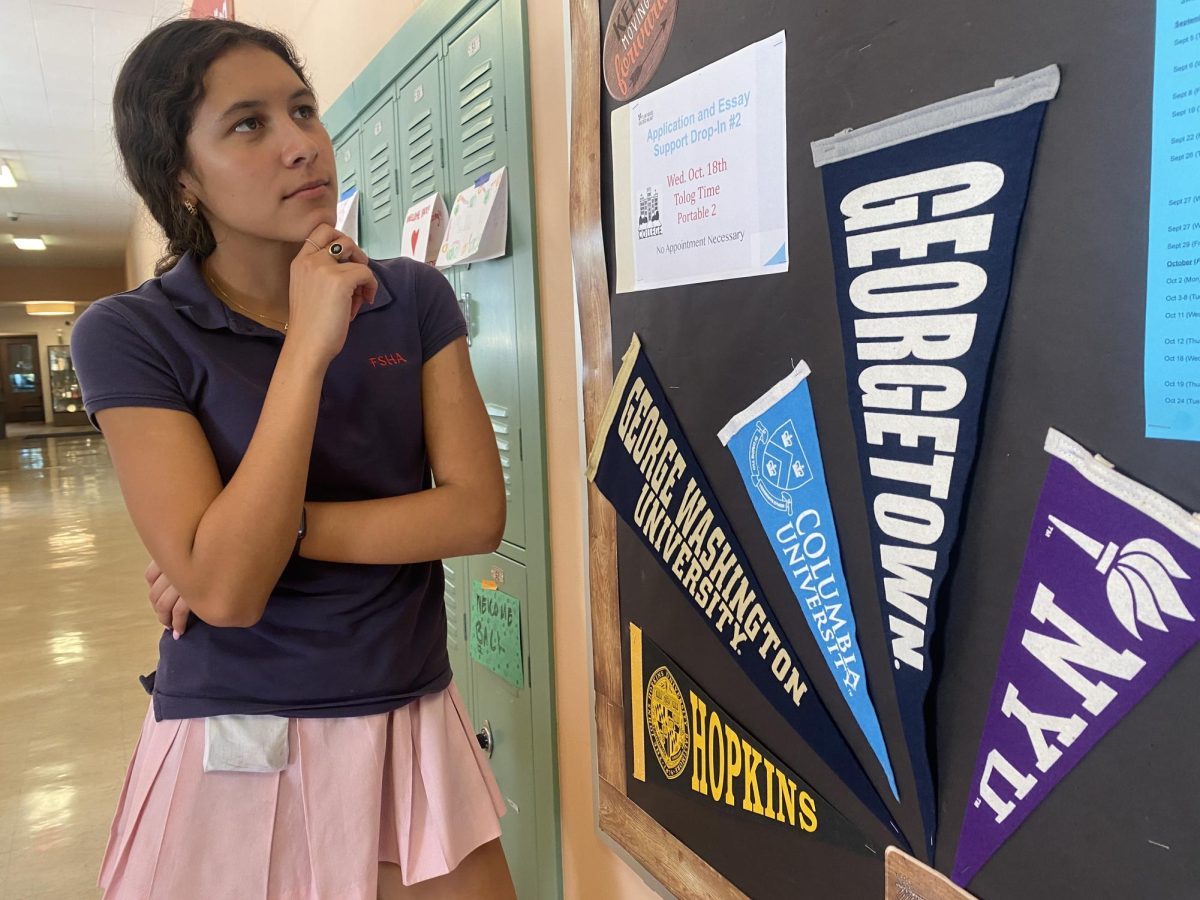This fall, Flintridge Sacred Heart has been grappling with the Supreme Court’s new ruling on affirmative action, as college matriculation could be impacted. The decision to strike down affirmative action in higher education overruled the court’s previous verdict in Grutter v. Bollinger, which permitted the use of race as one of many factors in college admissions.
Depending on where they apply, Flintridge Sacred Heart students may have to consider if the court’s decision will impact their applications.
In California, affirmative action was eliminated in public schools in 1996, so students applying to UCs and Cal States need not stress over whether their chances will change based on this ruling. When affirmative action was first eliminated in California, there was a temporary dip in the amount of minority students who attended state schools. This means that, in other states and at private universities, diversity among students accepted may momentarily decrease as well.
“We could see a similar trend, especially due to the bias of individuals who make these decisions, whether it’s conscious or unconscious bias,” Mrs. Stephanie Gonzalez Doo, Social Studies teacher said.
In addition to impacting acceptances, the Supreme Court’s decision may affect state schools’ funding for scholarships and on-campus affinity groups.
“We’re seeing a lot of institutions, especially within Florida, where they’re no longer funding the position of a DEI person … In some schools in Texas and Arizona, we’re seeing it also,” Mr. Roberto Dimas, Director of College Counseling said.
Due to these changes, some FSH seniors are revising their personal statements (the essays that typically accompany a college application) to include information about their racial backgrounds.
“I have been talking more about my heritage in my supplements, especially being part of Latinas United in Action … I’ve been talking about how important my heritage is to me,” Annie Ramirez ‘24 said.
“Race can still be discussed, and can still be used in the application process, but it needs to be connected to something that would have an impact on a student’s performance, for better or worse,” Mr. Dimas said.
While there is no downside to writing about racial background, it is hard to pinpoint whether or not it’s necessary, as student body diversity can be created in other ways.
“It’s difficult to even determine who is accepted into universities as a result of affirmative action … so, how do we factor in economic fairness as well?” Mrs. Gonzalez Doo said.
According to Mr. Dimas, an application-reader for UCLA, colleges measure diversity in a variety of ways.
“What we do look for are low income, first [generation] … usually there is a strong correlation between low income, and first [generation] and people of color, so that’s where the diversity comes from,” Mr. Dimas said.
So diversity on college campuses may not be permanently or significantly affected by the recent ruling, simply because college campuses are aware of other ways to create diversity and provide opportunities to marginalized groups.
However, students in areas of lower socioeconomic status may not have access to college counseling services, so they may not be aware of what Mr. Dimas called the “trick, so-to-speak” of discussing racial background in their writing. This may impact their acceptances, creating that temporary dip in college diversity nationwide, at least until community-based organizations mobilize and update these students.
For students who are a part of a racial majority, the application process may not change.
“It’s not really affecting how I’m applying or what schools I’m applying to,” Audrey de Groot ‘24 said, a senior who is currently applying to colleges.
Although college counselors and applicants can make predictions, because this is the first application cycle under the new ruling, it is yet to be seen how exactly the Supreme Court’s strike down of affirmative action will actually affect racial diversity on college campuses. However, FSH students and faculty agree that its value will remain constant.
“Diversity is essential to gaining knowledge and having better respect and understanding of individuals,” Mrs. Gonzalez Doo said.
To create this diversity in education, marginalized groups often work to be heard in previously exclusive spaces. When women were first admitted into colleges, they had to fight for womens’ stories to be included into history curriculums. Students who are a part of racial minorities often do the same, bringing issues to administrators and playing key roles in diversifying a university’s teachings. While the recent nation-wide strike down of affirmative action is being addressed here on the Hill, the tangible, nation-wide effects of this change remain a mystery. However, Mrs. Gonzalez Doo has hope that the future of the United States will be one that acknowledges a diversity of experiences.
“Maybe recognizing that the U.S. isn’t a perfect nation and looking at the different experiences of the people who have lived in this country will allow us to do better,” Mrs. Gonzalez Doo said.


